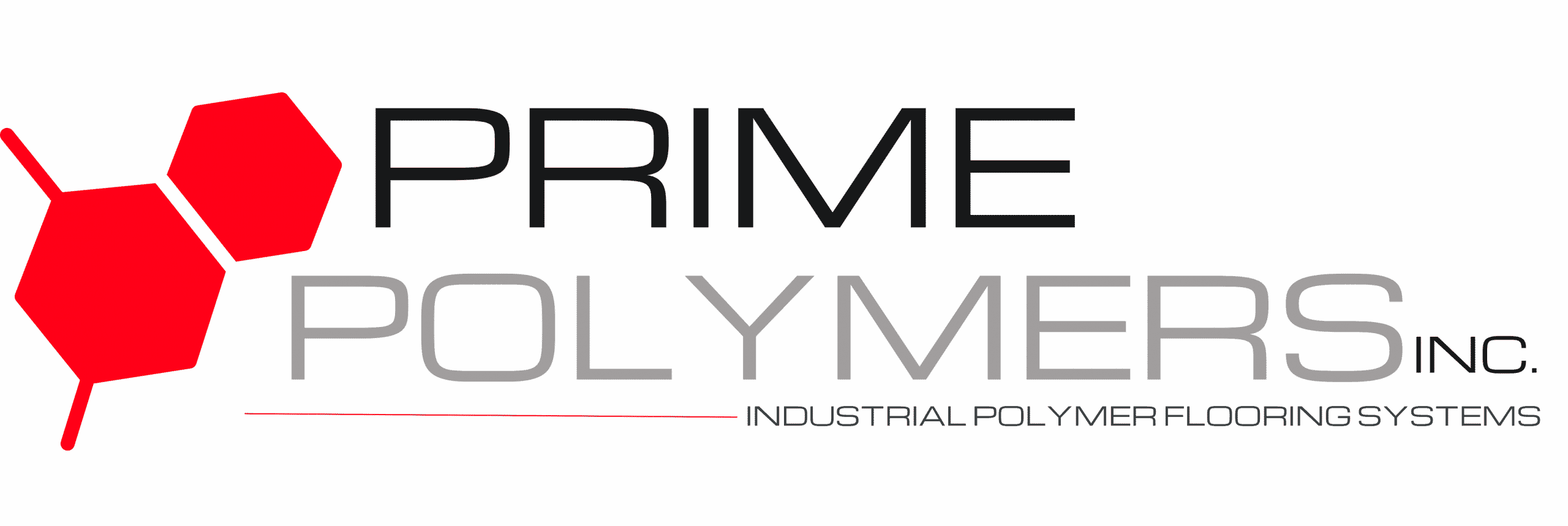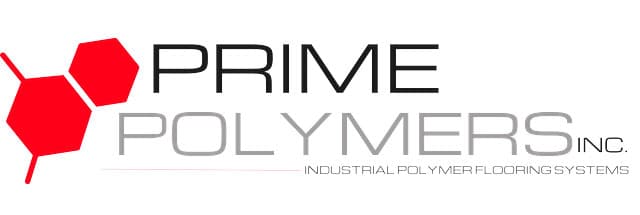Temperature Resistant Epoxy Coating
Rapid and extreme temperature fluctuations can cause havoc on a facility floor. Most floor coating material cannot withstand these diverse temperature swings and the result is an ugly, safety nightmare of cracks and deterioration.
Prime Polymers’ high temperature floor coating is manufactured by Prime Polymers and installed by Prime Polymers! We have been a single-source, turnkey provider of industrial flooring systems for more than 2 decades.
Problems When High Heat Items Hit The Floor
When something with a high temperature comes into contact with flooring surfaces designed for industrial purposes, it can lead to a range of problems and potential hazards. These issues can vary depending on the specific materials involved and the temperature differential. Problems include:
Surface Damage
Flooring surfaces that are not heat-resistant may suffer immediate damage when exposed to high temperatures. This may include melting, warping, or scorching of materials which may not withstand high heat.
Fire Hazard
In industrial settings, where the primary purpose of the flooring is to withstand heat, extremely hot objects can ignite flammable materials, such as certain types of industrial flooring, leading to fires and posing a significant safety risk.
Safety Hazards
Hot surfaces can create safety hazards for workers and visitors in industrial environments. The flooring should be designed to withstand temperatures to reduce the risk of burns or accidents.
Reduced Material Lifespan
Flooring materials that cannot withstand high heat may have a shorter lifespan in industrial settings, necessitating more frequent replacement and maintenance.
Weakening of Structural Integrity
In industrial contexts where flooring must withstand high heat, exposure to high temperatures can weaken the structural integrity of concrete, causing it to crack or spall. This can compromise the stability of the flooring.
Toxic Fumes
In industrial facilities, some materials may release toxic fumes when exposed to high temperatures. This poses health risks to occupants and workers if the flooring cannot withstand temperatures effectively.
Discoloration
Flooring materials that are not designed to withstand heat may discolor or develop permanent stains when exposed to high temperatures, thus affecting their appearance.
Odor and Off-Gassing
Elevated temperatures can cause certain materials to emit unpleasant odors or off-gas potentially harmful chemicals, which can be problematic for employees.
Thermal Expansion and Contraction
In environments where temperature control is essential, flooring that cannot withstand high heat may experience thermal expansion and contraction, potentially causing it to buckle, warp, or crack.
Difficulty in Maintaining Temperature
Maintaining a stable temperature can be challenging when hot objects come into contact with flooring that cannot withstand temperatures, affecting the overall environment.
Impact on Equipment
High-temperature objects dropped on flooring can damage both the object and the floor, leading to equipment downtime and repair costs if the flooring cannot withstand heat.
Energy Inefficiency
In warehouses or manufacturing plants, exposure to high temperatures can lead to increased energy consumption in order to maintain the desired conditions.
Reduced Workplace Comfort
In industrial workplaces, excessive heat transfer through flooring that cannot withstand heat can make the environment uncomfortable for employees, affecting productivity and morale.
To mitigate these problems, it’s essential to use flooring materials that are specifically designed to withstand high heat and meet the demands of the intended industrial purposes. This includes using heat-resistant flooring, applying protective coatings, and implementing safety protocols to handle high-temperature materials safely.
Our exceptionally experienced team has installed high temperature flooring in a multitude of facilities, all with unique requirements.
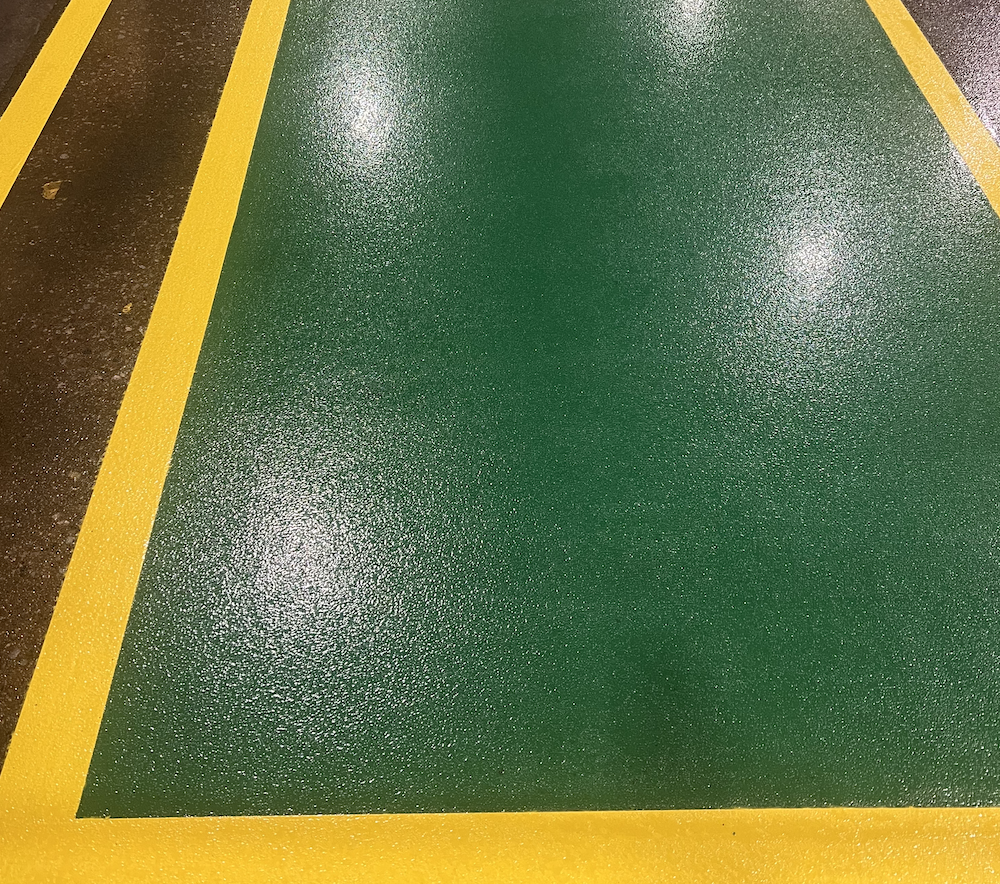
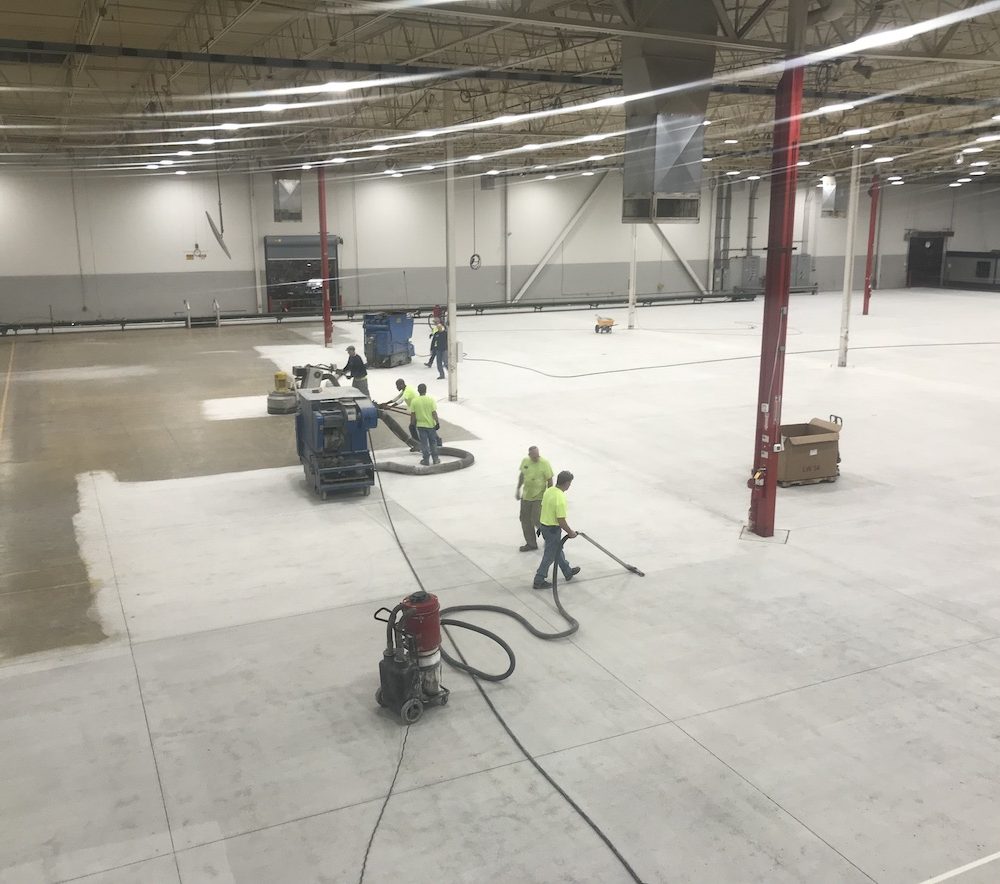
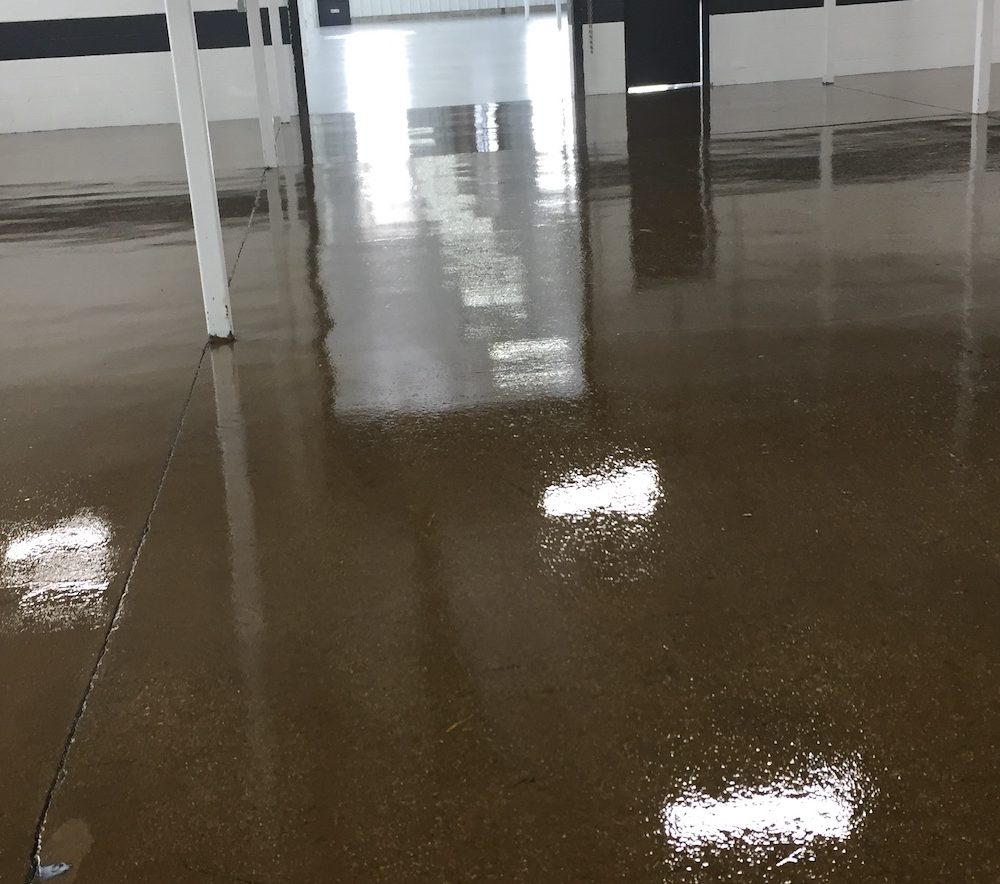
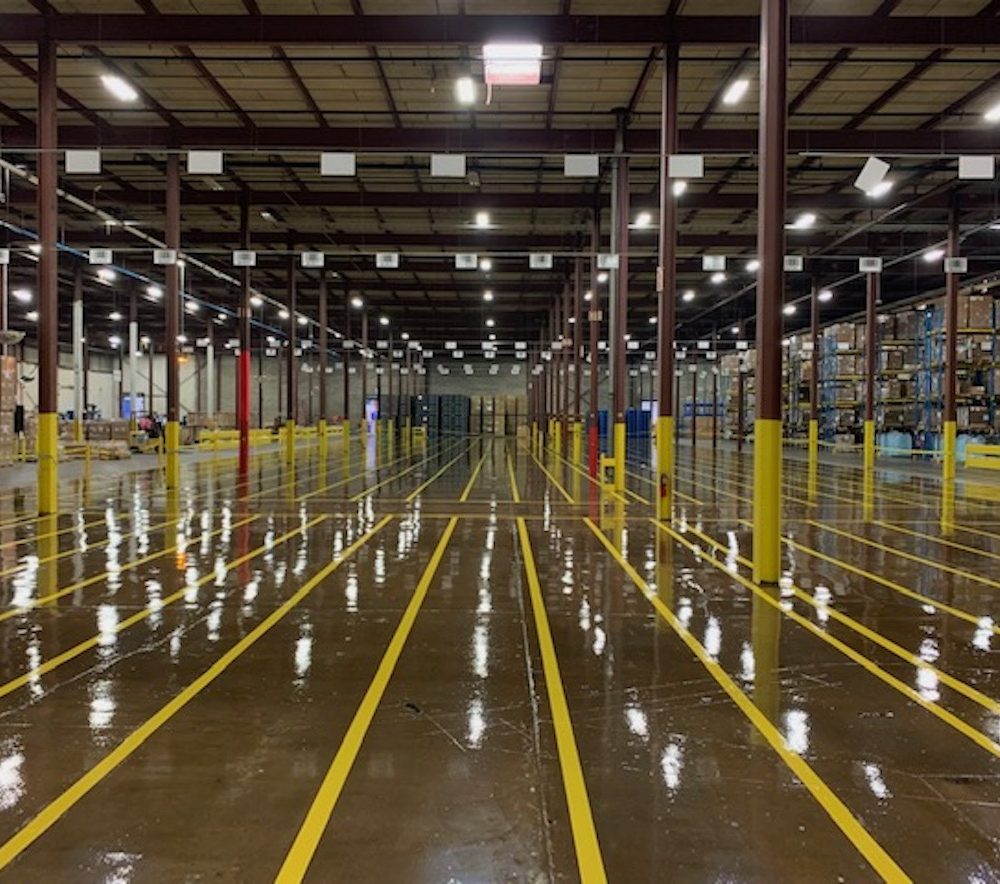
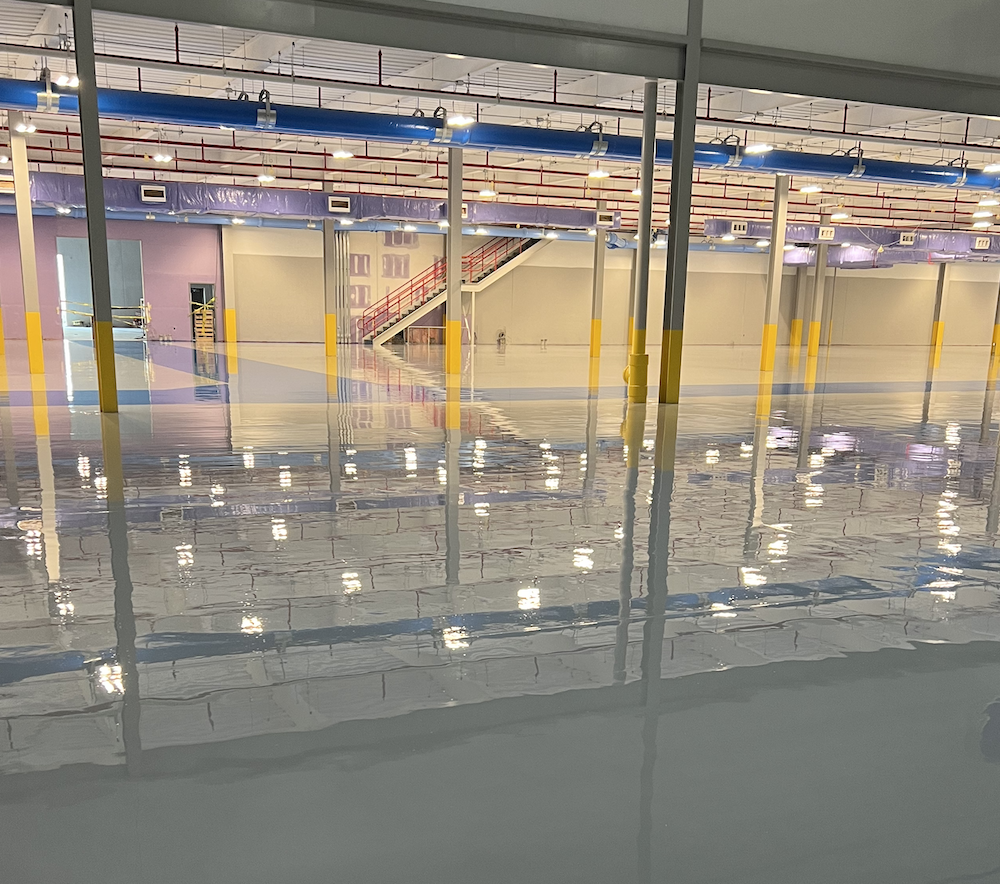
Our High Temperature Flooring Systems Deliver the Following Benefits:
Seamless
Temperature-resistant epoxy resin coatings create a seamless and continuous surface. This seamless finish eliminates joints or seams that can harbor dirt, moisture, and bacteria, making it easier to clean and maintain. It also provides a sleek and uniform appearance.
Thermal Shock Resistant
High-temperature epoxy systems are engineered to withstand thermal shock, which occurs when a surface experiences rapid temperature changes. This resilience helps prevent cracking or delamination of the epoxy coating, making it suitable for environments where temperature variations are frequent.
Anti-Slip Properties
Most heat-resistant epoxies can be formulated with additives to enhance their anti-slip properties. This is crucial in areas where safety is a concern, as the textured surface of the epoxy coating provides traction and reduces the risk of slips and falls. This is especially important when the surface is exposed to temperature extremes or moisture.
Antimicrobial Properties
Certain epoxy heat-resistant coatings are designed with antimicrobial additives. These epoxy systems inhibit the growth of bacteria, mold, and mildew on the surface. This makes them ideal for environments that require high hygiene standards, such as healthcare facilities and food processing plants.
Durable, Long Lasting
High-temp epoxy coatings are known for their durability and longevity. They can withstand heavy foot traffic, chemical exposure, and temperature fluctuations without degrading or deteriorating over time.
Economical
Epoxy systems, including high-temperature epoxy coatings, are a cost-effective flooring option, considering their durability and low maintenance requirements. They can significantly reduce the need for frequent repairs and replacement, saving both time and money.
Aesthetically Pleasing
Epoxy resin coatings are available in a wide range of colors and finishes, allowing for customization to match the aesthetic requirements of various spaces. This versatility makes it possible to create visually appealing and attractive flooring designs that enhance the overall look of the area.
We have installed thousands of square feet of high temperature epoxy flooring for the following industries:
Food and Beverage Facilities
Food and beverage facilities require high-temperature epoxy flooring to maintain a hygienic and safe environment. High-temperature epoxy coatings offer resistance to the heat generated during cooking, cleaning, and processing activities. They are also impermeable, preventing the absorption of liquids and contaminants into the flooring. This resistance to heat, moisture, and chemicals makes high-temperature epoxy flooring ideal for areas where food preparation, cooking, and packaging take place. It helps prevent the growth of bacteria and mold, ensuring compliance with strict food safety standards.
Commercial Kitchens
Commercial kitchens are hot and bustling environments where spills, heat, and heavy foot traffic are common. By using high temperature epoxy flooring, kitchens can withstand the high temperatures generated by cooking equipment, such as stoves, ovens, and grills. Its anti-slip properties ensure safety for kitchen staff, even in busy and wet conditions. Additionally, the seamless and durable surface is created during the curing process, and the high-temperature epoxy flooring makes it easy to clean and maintain, which is crucial for foodservice establishments.
Industrial and Commercial Bakeries
A significant amount of heat is created during the baking process. Using high-temperature epoxy flooring is essential in these facilities to withstand the continuous exposure to heat from ovens and baking equipment. The seamless and thermal shock-resistant properties of high-temperature epoxy coatings help prevent cracks and damage due to temperature fluctuations. This flooring also offers resistance to oils, fats, and food ingredients.
Meat Processing Plants
Meat processing plants operate under strict hygiene and safety regulations. High-temperature epoxy flooring is well-suited for these facilities due to its ability to withstand the high temperatures associated with meat and cleaning processes. Its antimicrobial properties inhibit the growth of bacteria and ensure a sanitary environment. The durability and resistance to chemical cleaning agents make high-temperature epoxy flooring an essential choice for meat processing plants to maintain hygiene, safety, and operational efficiency.
Cold Storage Facilities
In facilities, where temperatures are typically below freezing, there are benefits to high-temperature epoxy flooring.. While the term “high-temperature” may seem counterintuitive, it refers to the flooring’s ability to withstand temperature extremes, both hot and cold. In cold storage facilities, high-temperature epoxy flooring provides thermal shock resistance, preventing cracking and damage when exposed to extreme temperature variations.
High-temperature epoxy flooring is essential for various industries. It offers resistance to heat, thermal shock, chemicals, and moisture, making it an ideal choice to maintain hygiene, safety, and durability in these specialized environments.
Protect your facility with exceptional high temperature flooring systems by Prime Polymers! Call Prime Polymers today to schedule your comprehensive facility assessment and free quote.
References proudly provided upon request.
